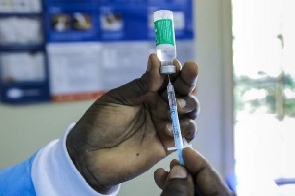Business News of Wednesday, 3 June 2020
Source: thebusiness24online.net
Investors seek stake in new home-based carrier project
The Economic Management Team (EMT), headed by the Vice President Dr. Mahamudu Bawumia, is assessing various proposals submitted by investors seeking to partner government in the new home-based carrier project.
Plans for establishing a privately-run home-based carrier to succeed the erstwhile Ghana International Airlines have been long in the works without a firm decision on the choice of a strategic partner.
Initial discussions with two international airlines—Ethiopian Airlines and Air Mauritius—stalled with no agreement on key decisions such as financing arrangement, routes to operate, and fleet size among others.
Interest by indigenous companies GOIL and GLICO has also cooled.
Aviation Minister Joseph Kofi Adda, in an exclusive interview with Business24, said there are new firm interests and the decision will soon be taken by the government’s economic advisory team.
“Most of these unnamed investors are local companies with foreign partners. Some of them have been made to show proof of funds and the Ministry is working with the EMT to sift through the current proposals. We will conclude everything by the end of the third quarter,” Mr. Adda, who is also the MP for Navrongo Central, said.
Despite the impact of COVID-19 on the aviation industry, Ghana is keen to complete the processes for a new home-based carrier in readiness for the easing of restrictions, discovery of a vaccine, and revival of the tourism sector.
Collectively, international airlines which fly to Ghana have lost an estimated US$400m in potential earnings since the coronavirus pandemic forced the closure of the country’s air, land and sea borders on March 22. The figure is expected the rise by US$100m if the closure extends beyond June 30.
The International Air Transport Association (IATA) estimates that the pandemic could cost the global industry about US$250bn this year.
Mr. Adda said mistakes of the past have served as warning signs in this new project, hence the new home-based carrier will be private sector-led with strong local content.
“This will be a privately-run entity. Majority of the shares of the airline will be Ghanaian-owned. We have encouraged them [investors] to explore partnership with existing domestic airlines.”
Why investor interest in the midst of crisis
The COVID-19 pandemic has led to a sharp decline in the prices of airlines stocks across the world. Major airlines saw their stocks plummet and being dumped by experienced investors such as Warren Buffet.
For instance, Air France-KLM, whose stocks were trading at €10.94 as at October 29, 2019, saw its fortunes change rapidly when its stock price fell sharply to €4.26 by March 12, before dropping further to €3.77 by May 25. Delta Air Lines’ stock also fell by 52 percent at the height of the pandemic.
Despite this grim outlook, the Africa region remains one of the areas with huge potential, given the poor air connectivity in the region.
Ghana’s desire to establish a new flag-carrier is born out of the desire to leverage the facilitating role of aviation for one of the fastest-growing economies in the world pre-COVID-19.
The country seeks to become the aviation hub of the sub-region, and this is seen as a key part of that project.
With an estimated population of 350m, most of whom are under 30 years, the sub-region is fertile for aviation growth post-COVID-19.
Aviation is an enabler and the aviation economy employs millions of people and generates billions in revenue.
For a nation seeking to create jobs for hundreds of unemployed tertiary-educated graduates, building a strong aviation sector is imperative.
National pride and recapturing the old routes plied by the defunct Ghana Airways are also some of the key motivations
Entertainment











